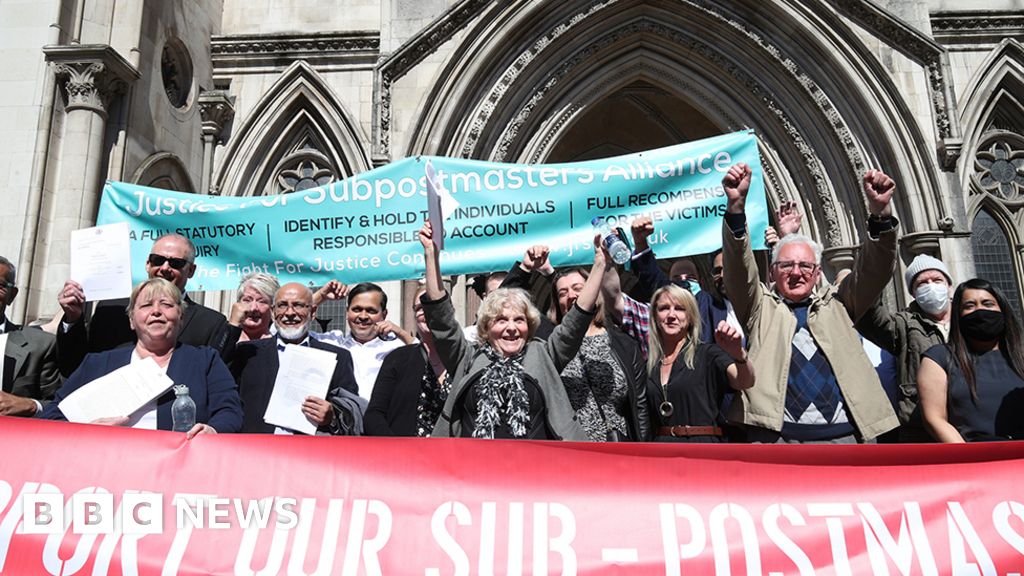**The Shocking Truth Behind the Post Office Scandal: Unraveling the Mystery of the Horizon Saga**
The recent spotlight on the Post Office scandal and the Horizon saga has shed light on the devastating impact it has had on hundreds of sub-postmasters and postmistresses. This article delves into the details of this scandal, exploring its implications and the ongoing efforts to address the injustices incurred.
**What is the Post Office scandal?**
Between 1999 and 2015, the Post Office prosecuted 736 sub-postmasters and sub-postmistresses based on information from a computer system called Horizon. Despite maintaining their innocence and highlighting issues with the software, many were wrongly convicted of false accounting and theft, leading to financial ruin and, in some cases, imprisonment. After two decades of legal battles, only 93 convictions have been overturned to date, underscoring the enduring struggle faced by the victims of this scandal.
**What is the Horizon system?**
The Horizon system, introduced by the Post Office in 1999, was intended for tasks such as accounting and stocktaking. However, sub-postmasters reported encountering bugs in the system, leading to false reports of shortfalls amounting to substantial sums. To mitigate these apparent shortfalls, some individuals resorted to covering the discrepancies with their own funds, ultimately facing bankruptcy and severe financial repercussions.
**More on the Post Office scandal**
The scandal’s impact extends far beyond the financial realm, as numerous former sub-postmasters and postmistresses have described how their lives were irrevocably altered. The enduring consequences of criminal convictions and imprisonment have taken a toll on their emotional and physical wellbeing, with broken marriages, health issues, and premature deaths attributed to the stress and trauma inflicted by this ordeal.
**What was the effect on Post Office workers?**
The aftermath of the scandal has been harrowing for the individuals affected, with devastating repercussions including the breakdown of relationships, health complications, and tragedy. Families have borne the brunt of the far-reaching effects, grappling with the fallout of the scandal on a deeply personal level.
**Will convictions be quashed?**
Efforts are underway to rectify the injustices perpetrated against the victims of the Post Office scandal, with the government considering steps to clear the names of those convicted. However, for many who endured the trauma of wrongful imprisonment and the enduring aftermath, the quest for justice and full compensation remains an ongoing battle. The pursuit of accountability and restitution for the victims is a testament to their unwavering resilience and determination to seek redress.
In conclusion, the calamitous ramifications of the Post Office scandal and the Horizon saga have reverberated through the lives of countless individuals, underscoring the urgent need for comprehensive measures to address the profound injustices inflicted. The enduring resilience of the victims and their relentless pursuit of justice serve as powerful reminders of the imperative to rectify the grievous miscarriages of justice that have marred the lives of so many.**Government’s Dilemma in Overturning Convictions**
The government is facing significant pressure to swiftly overturn the convictions of Post Office workers who were wrongfully accused in a scandal. Nevertheless, this is proving to be a complex and challenging task.
**Challenges in Overturning Convictions**
The Justice Secretary, Alex Chalk, has acknowledged that utilizing legislation to quash the convictions of the affected Post Office workers is actively being considered. However, this endeavor is fraught with difficulties as the decisions of the courts and judges are constitutionally independent of politicians and Parliament. According to BBC’s home and legal affairs correspondent, Dominic Casciani, any attempt by the government to introduce a bill to invalidate relevant legal convictions could potentially undermine the independence of the judiciary.
Another potential option entails issuing royal pardons to the numerous wrongly accused sub-postmasters. Nevertheless, this would primarily serve as a symbolic gesture and wouldn’t effectively overturn their convictions. Additionally, expediting existing appeals has been proposed as a viable third option. Following an earlier ruling exposing flaws in the Horizon system, the Criminal Cases Review Commission referred 42 Post Office cases to the Court of Appeal, resulting in the exoneration of 39 individuals in a single instance. However, the stringent legal test applied by the CCRC has been criticized for potentially rejecting cases that should proceed.
**Compensation for Victims**
Highlighting the issue of compensation, the government has previously announced that Post Office workers who have had their wrongful convictions overturned would be offered £600,000 each. However, concerns have been raised regarding the slow pace at which compensation is being disbursed to the victims. Out of the 93 overturned convictions, only 30 individuals have agreed to “full and final settlements”. Furthermore, the remaining cases have either resulted in upheld convictions, refusals to appeal, or individuals withdrawing from the process, as reported by the Post Office. The total amount disbursed for full and final compensation payments to victims currently stands at £17.3 million.
**Criticism of Paula Vennells and Ed Davey**
The handling of the scandal has sparked criticism directed at Paula Vennells and Ed Davey. Paula Vennells, who served as the Post Office chief executive during the period when the scandal unfolded, has faced significant scrutiny. Additionally, Ed Davey, the former postal affairs minister, has also encountered pressure over his actions during the scandal. In 2010, he initially declined to meet Alan Bates, a sub-postmaster who played a pivotal role in exposing the scandal, indicating that he did not see the purpose in such a meeting. Their actions have drawn condemnation and raised questions about their handling of the situation.
In conclusion, the government is confronted with a complex and multifaceted challenge as it strives to address the wrongful convictions of Post Office workers. The dilemma is amplified by the intricate legal and constitutional considerations that must be navigated, coupled with the imperative to expedite compensation for the victims. Furthermore, the scrutiny directed at key figures involved in the scandal underscores the need for accountability and transparency in addressing such egregious miscarriages of justice.


